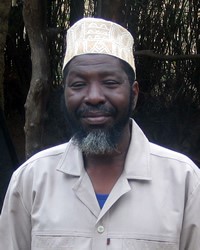Burji in Ethiopia

Photo Source:
Tego Wolasa
|
Send Joshua Project a map of this people group.
|
| People Name: | Burji |
| Country: | Ethiopia |
| 10/40 Window: | Yes |
| Population: | 138,000 |
| World Population: | 178,000 |
| Primary Language: | Burji |
| Primary Religion: | Ethnic Religions |
| Christian Adherents: | 40.00 % |
| Evangelicals: | 38.00 % |
| Scripture: | New Testament |
| Ministry Resources: | No |
| Jesus Film: | No |
| Audio Recordings: | Yes |
| People Cluster: | Omotic |
| Affinity Bloc: | Horn of Africa Peoples |
| Progress Level: |
|
Introduction / History
Also called Amara-burji, the ultimate origin of the Burji is traced near a place called Liban in northern Ethiopia around the sixteenth century. It is widely believed that at one time the Burji were part of the Amhara peoples of Ethiopia. This view is borne out by various factors, one of which is similarity between the names; one is known as Amhara and the other as Amara. There is also considerable linguistic affinity between the Burji and the Sidama who are related to the Amhara. With which the Burji language has over 41% lexical similarity.
Ancient Burji were agricultural people who lived around the Gara Burji in Ethiopia. Their territory was to the east of river Galana Amara and south-east of Lake Abaya. To the west, across the Galana Amara was the Konso country, to the north the Darasa and to the south and south-east the Boran.
The Burji are currently scattered across Kenya with a large concentration in Moyale, Marsabit and Part of Nairobi where they have become economic powerhouse of the upper eastern province of Kenya. Compared to their population in Ethiopia, its only a small percentage of the Burji that is found in Kenya with great number remaining in Gara Burji or scattered elsewhere in southern Ethiopia.
The Amara-Burji are divided into two main groups: the Burji and the Gubba. The Amhara tribe lives in the extreme northwestern corner of Ethiopia, next to the Gubba tribe. It is difficult to establish any cultural and linguistic affinity between the Gubba tribe in the north and the Gubba in Gara Burji.
Towards the end of 16th Century, triggered by a misunderstanding between the Burji and the Boran, from Liban the Burji moved in a westerly direction and settled at a place called Abuno which they have strong sentiments about.
The Abyssinians conquered the Burji in 1896. Emperor Menelik ruled Ethiopia between 1890 and 1913. At the beginning of his reign, Ethiopia comprised of four provinces of Amhara, Shoa Tigre and Gojjam and by the end of his reign, the Kingdom had been extended to more than twice its original size. Between 1890 and 1900, the territories of the Oromo including Burji land were subdued. When Menelik sent his General Ras Gadi and the soldiers to the Burji country in 1895, Guyo Aba Gada was the ruler of Burji. Firmly convinced that it was pointless to resist, he advised his people to exercise restraint, and they yielded without resistance. The Burji did not suffer destruction, but they gradually lost their freedom. After Menelik's historic victory over the Italians at Adowa and the signing of the peace treaty in October 1896, the generals became ruthless in their dealing with the Burji people. In a very short time, the Burji were reduced from proud independent people to the humbled status of slaves. The entire population was rounded up and used by the generals as forced laborers. Land was seized and declared crown land, and it was on this that the Burji toiled.
As the Burji could not successfully rise and revolt, many people decided to move away and began to disperse into the territories of neighboring groups. Some migrated to Konsos and Darasa country, while others went to Yabalo and Agar Maram. From Gara Burji, Yabalo and other areas of refuge, the Burji began to migrate southwards, settling for a while, but moving gradually onwards until they had passed over into Kenya where many remain today.
What Are Their Lives Like?
Today, Burji farmers grow teff, a staple grain for Ethiopian food used to make injera bread. They also raise livestock.
They have their own style of music that is popular both in Ethiopia and Kenya.
What Are Their Beliefs?
In Kenya, the majority of the Burji are Sunni Muslims, while the remaining are either Christians or traditionalists. In Ethiopia, they have a strong Orthodox and Evangelical presence that can reach the Horn of Africa.
What Are Their Needs?
Living in a dry part of Africa, the Burji need reliable, clean water.
Prayer Points
Pray for the Burjis to have a record harvest this year as a testimony of God's goodness and power.
Pray for the Holy Spirit to move in their churches and families, leading them to a closer walk with Jesus Christ.
Pray for Burji disciples to make more disciples, especially among the Muslim population.